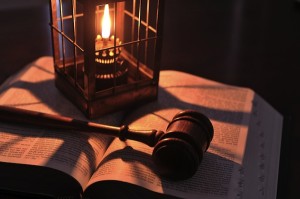 Oracle CEO Larry Ellison may have felt like king of the world Wednesday night as he announced his company's move to the cloud, but today he's likely licking his wounds: Oracle's case against Google over Android's use of Java is essentially dead.
Oracle CEO Larry Ellison may have felt like king of the world Wednesday night as he announced his company's move to the cloud, but today he's likely licking his wounds: Oracle's case against Google over Android's use of Java is essentially dead.
Judge William Alsup ruled Thursday that Oracle could not assert copyright claims on Google for 37 different Java APIs used within Android. Alsup ruled that only the code within, and not the way they are used, are subject to copyright claims.
Oracle was obviously displeased with the ruling and said in a statement that it intends to appeal.
"Google’s implementation of the accused APIs is not a free pass, since a license has always been required for an implementation of the Java Specification", it argues. "This ruling, if permitted to stand, would undermine the protection for innovation and invention in the United States and make it far more difficult to defend intellectual property rights against companies anywhere in the world that simply takes them as their own".
For those keeping score, Oracle won a muddled victory in the copyright phase, with the jury finding that Oracle had successfully proven Google's infringement upon the overall structure, sequence and organization of its Java copyrights. At the same time, the jury could not agree if Google's application of Java constituted "fair use".
In the patent phase of the trial, Oracle lost outright, with the jury finding no evidence at all of patent infringement. Now with the API question resolved in Google's favor, Oracle's case is pretty much decimated.
It should be noted that Alsup's ruling is fairly narrow, which doesn't address the point of whether or not APIs are actually copyrightable. "No court of appeals has addressed the copyrightability of APIs, much less their structure, sequence and organization. Nor has any district court", he says in his ruling.
That statement should calm developers' nerves, says legal site Groklaw "The sky has been full of FUD about this topic, with folks, both self-styled experts and even a lawyer who has done work for Microsoft claiming that APIs have been copyrightable for years and years, throwing cases at us and examples of terms of use", the site writes. (A copy of the ruling is also available on the site as well.)
"Terms of use don't make law, ladies and gents and experts and lawyers. A company can say whatever it pleases, but that doesn't mean they are in harmony with the law". In other words, some company is going to need to take the issue itself to court in order to get solid legal opinion on what has become a hot-button issue for many in the development community.
So where does this leave Oracle? Without a case and with little restitution, it appears. For the copyright infringement portion of its case, the maximum Oracle will be able to collect is $150,000. That's far below the millions it has spent over the last two years to attempt to cash in on Android.
In a statement, Google lauded Alsup's decision as a victory for innovation. "The court’s decision upholds the principle that open and interoperable computer languages form an essential basis for software development", a spokesperson says.
Photo Credit: JustASC/Shutterstock

